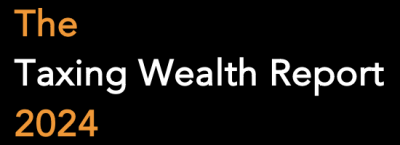The purpose of tax is to achieve a number of goals, none of which is directly related to government spending for seasons noted in the section on the economics of tax on this website. Instead, tax can be related to these policy goals:
- Reclaiming the money the government has spent into the economy. For reasons noted in the section of this report on the economics of tax, it might appear that tax revenue is used to pay for government services supplied but that is not true: in an economy of the type found in the UK, central government spending is always paid for in the first instance out of funds the government borrows from its central bank. Tax, in that case, reclaims the money that a government has spent into its economy to prevent excessive inflation arising as a consequence of that spending taking place. The amount reclaimed is that which is considered sufficient to leave the desired rate of inflation in the economy.
- Ratifying the value of money. A government that requires that tax be paid using the currency that it creates does, for all practical purposes, require that the currency in question be used on a day-to-day basis in the economy for which it is responsible, assuming that tax forms a significant part of people's total liabilities. The need to pay tax does, therefore, give a currency its value in exchange. This, as a consequence, passes control of an economy to the government that charges that tax. This makes tax an absolutely fundamental component in macroeconomic policy.
- Reorganising the economy. Fiscal and monetary policy are the two fundamental tools available to a government to manage its economy, assuming it has its own currency. As the explanation already offered has shown, money creation and taxation are the flip side of each other. Tax is then an integral part of macroeconomic policy and so of reorganising the economy to meet social and economic goals.
- Redistributing income and wealth within the economy. Experience has shown that market economies are very good at concentrating income and wealth in the hands of a few people in a society. At the same time economics makes clear that this is harmful to the prosperity of a society as a whole because it seriously reduces overall levels of demand in the economy. Redistribution of income and wealth is then an essential function that any Government must undertake and appropriately designed taxes are a proven and effective method for delivering this policy.
- Repricing goods and services. Markets cannot always price the externalities of the goods and services they supply or reflect social priorities. Tax permits repricing of goods and services to reflect these facts.
- Raising representation in a democracy. There is some evidence that people who know they pay tax are more likely to vote. This only seems to be true, however, for income taxes. That's why it is important that people are in that tax system. When they are they want a say on how the system works and democracy is enhanced as a result.
When these facts are properly understood by governments tax can properly be used as a tool of government economic policy making. That is where it rightfully belongs because what tax never actually does is raise money to pay for government expenditure, all of which is paid for by government money creating in the first instance in an economy of the sort the UK has.





